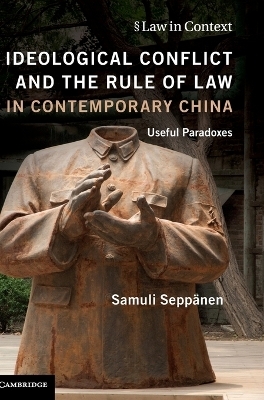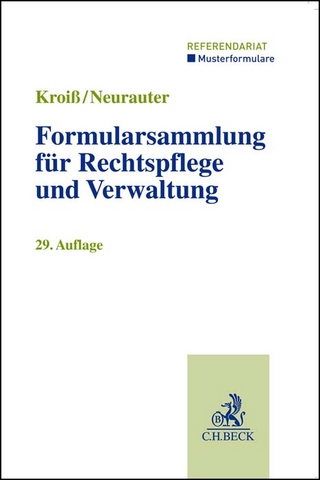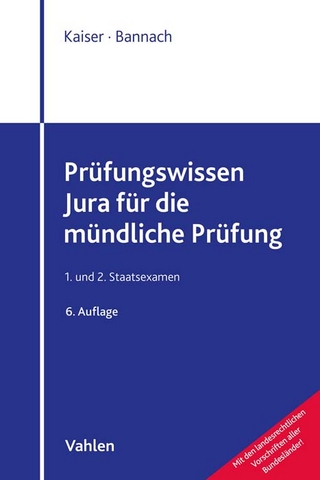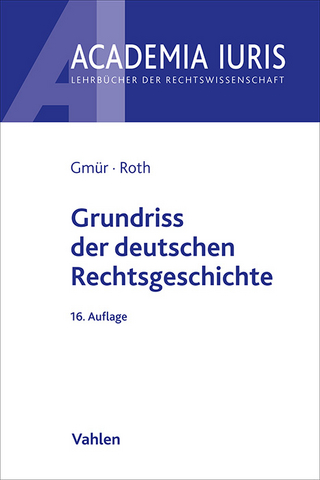
Ideological Conflict and the Rule of Law in Contemporary China
Cambridge University Press (Verlag)
978-1-107-14290-9 (ISBN)
This book studies ideological divisions within Chinese legal academia and their relationship to arguments about the rule of law. The book describes argumentative strategies used by Chinese legal scholars to legitimize and subvert China's state-sanctioned ideology. It also examines Chinese efforts to invent new, alternative rule of law conceptions. In addition to this descriptive project, the book advances a more general argument about the rule of law phenomenon, insisting that many arguments about the rule of law are better understood in terms of their intended and actual effects rather than as analytic propositions or descriptive statements. To illustrate this argument, the book demonstrates that various paradoxical, contradictory and otherwise implausible arguments about the rule of law play an important role in Chinese debates about the rule of law. Paradoxical statements about the rule of law, in particular, can be useful for an ideological project.
Samuli Seppänen is an assistant professor at the Faculty of Law of The Chinese University of Hong Kong. He holds an S. J. D. degree from Harvard Law School and a law degree from Helsinki University, Finland.
Foreword William P. Alford; Preface and acknowledgments; 1. Introduction: 1.1 A change of perspective; 1.2 A return to ideology; 1.3 Limitations, academic positioning and apologies; 1.4 Structure of the book; 2. Setting the stage: 2.1. Three generations of Chinese legal scholars; 2.2 Historically significant scholarship; 2.3 Conservative socialist reforms; 2.4 The mainstream state of mind; 2.5 Liberal sensibilities; 2.6 The avant-garde point of view; 2.7 New orthodoxies and heterodoxies; 2.8 Conclusion: resisting and affirming the ideological positions; 3. Ideological cynicism meets theoretical skepticism: 3.1 Some realism about ideological realism; 3.2 The life and thought of Luo Gan; 3.3 Luo Gan's speeches through the kaleidoscope of social theory; 3.4 A theoretical smorgasbord; 3.5. Conclusion: knowing how not to know; 4. Useful paradoxes: the conservative socialist ideological position: 4.1 Introduction; 4.2 Between the romanticism of illegality and the romanticism of legality; 4.3 Useful paradoxes; 4.4 Neoconservative reconfigurations; 4.5 Conclusion: paradoxes as entry points for local knowledge; 5. Thick mainstream, thin liberalism and vice versa: 5.1 Introduction; 5.2 All things considered; 5.3 Wang Liming and mainstream strategies; 5.4 Prescriptions of paternalism and autonomy; 5.5 Li Buyun and the ever-thickening rule of law conception; 5.6 Liberalism for an authoritarian state; 5.7 Conclusion: merging the narratives; 6. Avant-garde renewal and nostalgia: 6.1 Introduction; 6.2 Critical avant-garde scholarship; 6.3 New Confucian hybrids; 6.4 Communitarian rule of law; 6.5 The paradoxes of ideological renewal; 6.6 Jiang Shigong and the irrationalist turn; 6.7 Conclusion: a cycle of hope and disillusionment; 7. Conclusions; 7.1 'But nothing falls'?; 7.2 Argumentative strategies; 7.3 Leaps of faith; 7.4 Ideological positions at play: explicating the rural land rights debate; 7.5 Orientalist exotica; Textbook answers to the questions in chapters 1–6; Bibliography; Index.
| Erscheinungsdatum | 07.09.2016 |
|---|---|
| Reihe/Serie | Law in Context |
| Verlagsort | Cambridge |
| Sprache | englisch |
| Maße | 179 x 254 mm |
| Gewicht | 560 g |
| Themenwelt | Recht / Steuern ► Allgemeines / Lexika |
| Recht / Steuern ► EU / Internationales Recht | |
| ISBN-10 | 1-107-14290-3 / 1107142903 |
| ISBN-13 | 978-1-107-14290-9 / 9781107142909 |
| Zustand | Neuware |
| Haben Sie eine Frage zum Produkt? |
aus dem Bereich


